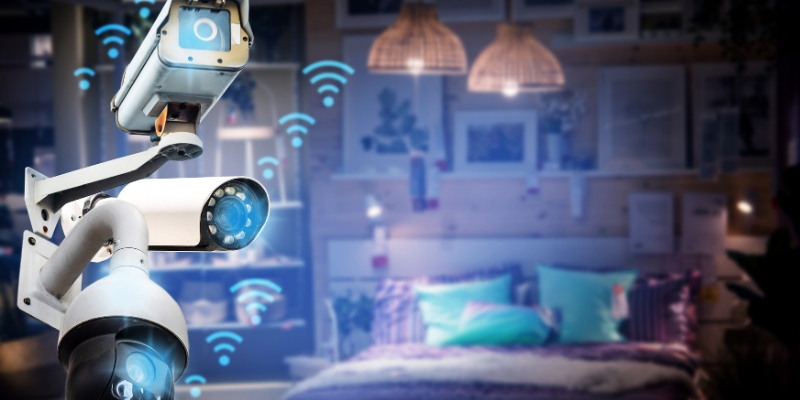As the popularity of short-term rental platforms like Airbnb continues to grow, so do concerns about guest privacy and security. In response to these concerns, Airbnb has taken a strong stance against hosts using security cameras inside their properties.
Airbnb’s policy on security cameras is clear: hosts are not allowed to have any surveillance devices inside their properties, including but not limited to cameras and microphones. This policy applies to both private and shared spaces within the property.
The reasons behind Airbnb’s ban on indoor security cameras
Airbnb’s decision to ban indoor security cameras is rooted in a commitment to protecting guest privacy and ensuring a safe and comfortable experience for all guests. By prohibiting hosts from installing surveillance devices inside their properties, Airbnb aims to create a welcoming environment where guests can feel at ease during their stay.
Some of the key reasons behind Airbnb’s ban on indoor security cameras include:
- Violation of guest privacy: Guests have a reasonable expectation of privacy when staying in a rental property. Surveillance devices inside the property can violate this expectation and make guests feel uncomfortable.
- Risk of misuse: Indoor security cameras can be misused by hosts or others to monitor guests without their knowledge or consent, leading to potential abuse of personal information.
- Potential for legal issues: The use of indoor security cameras could raise legal concerns regarding invasion of privacy, wiretapping laws, and other regulations that vary by jurisdiction.
Airbnb’s warning to hosts who violate the policy
Airbnb takes violations of its policy on indoor security cameras very seriously. Hosts who are found to have installed surveillance devices inside their properties may face consequences ranging from warnings and fines to removal from the platform altogether.
In addition to enforcing its ban on indoor security cameras, Airbnb encourages guests who believe they are being monitored without consent to report the issue immediately through its customer support channels. By actively monitoring reports and taking swift action against violators, Airbnb aims to maintain trust and transparency within its community.
Alternatives for host safety and guest comfort
To ensure safety and peace of mind for both hosts and guests without resorting to indoor security cameras, there are several alternative measures that hosts can take:
- Enhance exterior lighting: Install motion-sensor lights or bright outdoor lighting around the property to deter intruders and provide visibility at night.
- Secure windows and doors: Invest in sturdy locks, deadbolts, and window locks to prevent unauthorized entry into the property.
- Create clear house rules: Communicate expectations with guests upfront regarding noise levels, smoking policies, check-out procedures, etc., to minimize conflicts during their stay.
In conclusion
Airbnb’s ban on indoor security cameras reflects its commitment to protecting guest privacy and fostering a safe environment for all users. By following this policy and exploring alternative safety measures, hosts can uphold these values while providing a positive experience for their guests.
If you’re considering renting out your property on platforms like Airbnb, remember: don’t use security cameras inside!
